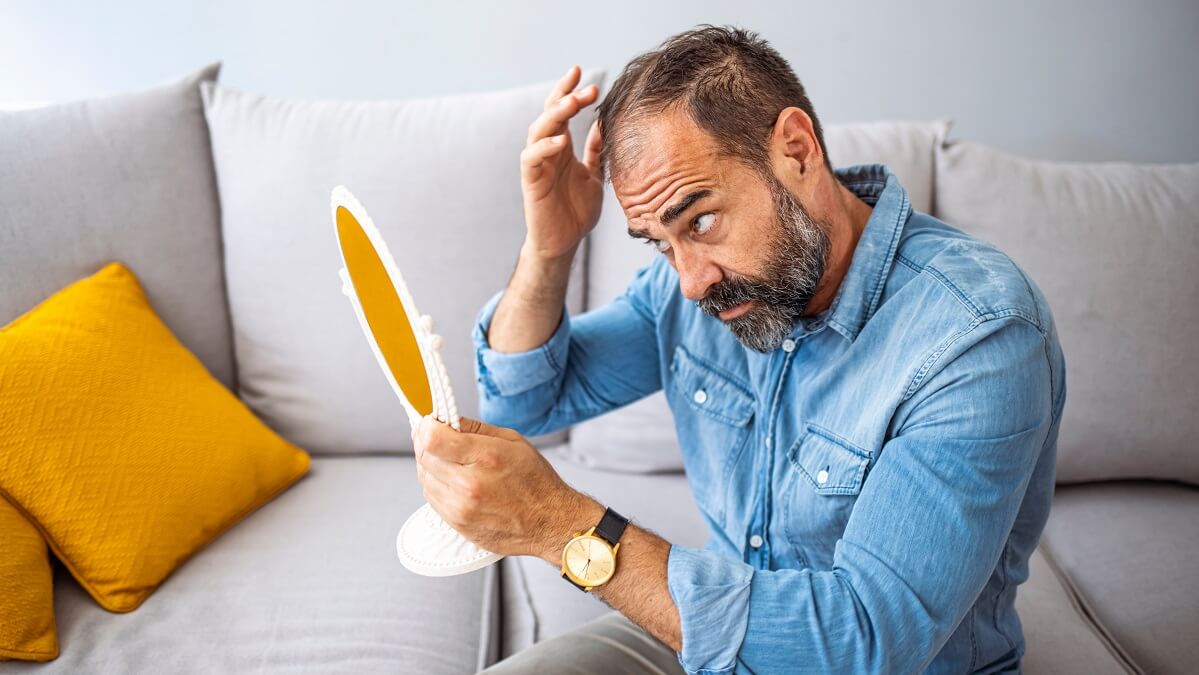In news that will make many men (and also some women) very happy, scientists have made a potential breakthrough in the treatment of baldness and hair growth.
A permanent cure for baldness could be just around the corner after researchers from Northwestern University demonstrated in a study a way to stimulate hair regrowth in people experiencing hair loss.
The team discovered that as people age, their hair follicles stiffen, making it difficult for hair to grow. In tests on mice, they found that by softening the stem cells in the hair follicles they were able to stimulate the follicles and get hair growing again.
To relax the follicle, the researchers genetically stimulated production of a tiny RNA particle called miR-205, which is responsible for controlling the stiffness of the follicle.
Professor Rui Yi, senior author of the study, says the result was hair growth in both young and old mice.
“They started to grow hair in 10 days,” he says.
“These are not new stem cells being generated. We are stimulating the existing stem cells to grow hair. A lot of times we still have stem cells, but they may not be able to generate the hair.”
Prof. Yi says the next step is to test whether topically delivered miR-205 can stimulate hair growth in mice, with the potential to eventually translate the findings to humans.
“Because of the potential to deliver microRNA by nanoparticles directly into the skin, next we will test whether topically delivered miR-205 can stimulate hair growth first in mice,” he said.
“If successful, we will design experiments to test whether this microRNA can promote hair growth potentially in humans.”
The study was conducted using genetically engineered mouse models, and advanced microscopy tools were used to measure the stiffness of the hair follicles and monitor cell behaviours in the live animals.
But hair restoration surgeon Dr Ken Williams Jr told Medical News Today that although the results of this study were positive, the treatment may not necessarily transfer smoothly from mice to human subjects and that other proven treatment options for baldness are available.
“To date, the proven medical therapies [for baldness] include DHT inhibitors such as finasteride and induction medications such as minoxidil that stimulate hair growth,” he says.
Dr Williams said other methods, such as hair cloning, have seemed promising in mouse trials, only to prove non-translatable to humans.
“Hair cloning has been tried for over one-and-a-half decades with good outcomes in the mouse model, but disappointing results in humans.”
What remedies for baldness have you tried? Are you even worried about losing hair? Let us know what you think in the comments section below.
Also read: Can this oil really boost hair growth?


Another clickbait article. Halfway in we’re informed that “hair restoration surgeon Dr Ken Williams Jr told Medical News Today that although the results of this study were positive, the treatment may not necessarily transfer smoothly from mice to human subjects and that other proven treatment options for baldness are available.” This website seems to be more for advertisers than for Seniors.